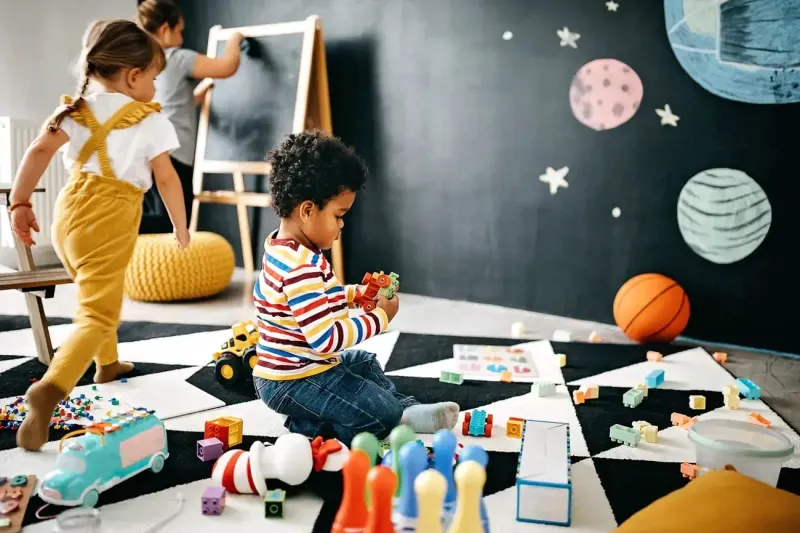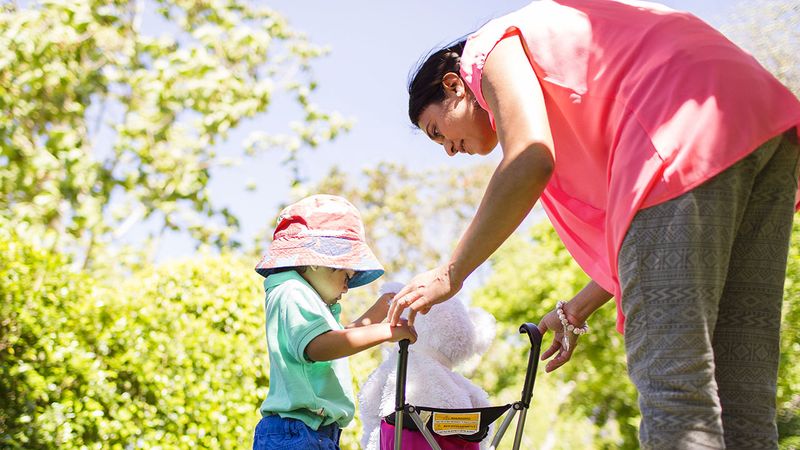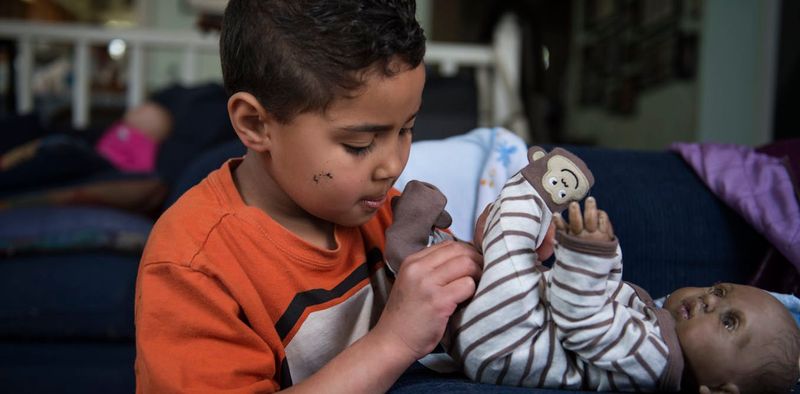Parenting advice seems to come from everywhere—books, social media, relatives, even strangers at the grocery store. But not all of it is grounded in reality or backed by research.
Some of the most popular beliefs about raising children are not just misleading—they can actually do more harm than good. It’s time to challenge the outdated assumptions and half-truths that too many parents still accept as gospel.
These 15 parenting myths have stuck around for far too long, and the sooner we let them go, the better we can show up for our kids (and ourselves) in a healthy, informed, and authentic way.
1. Good Parents Never Yell
Even the most composed parents find themselves raising their voices occasionally. The real magic lies not in the absence of yelling but in how parents repair and reconnect afterward. It’s a chance to model apologizing and rebuilding trust.
In the heat of the moment, emotions can run high, causing even the calmest parent to lose their patience. What’s vital is the aftermath, where open communication helps mend the temporary rift.
Yelling doesn’t define bad parenting; it highlights human nature. Parents who acknowledge their mistakes teach children about forgiveness and emotional resilience.
2. Children Must Always Be Happy
Chasing perpetual happiness for children is a fairytale. It’s crucial to let them experience a spectrum of emotions, teaching them to navigate the complexities of life. Joy is just one piece of the emotional puzzle.
When children learn to identify and process emotions like sadness, anger, and frustration, they develop critical coping skills. Shielding them from discomfort can hinder their emotional growth.
True emotional intelligence arises from understanding all feelings. Parents can guide children by validating these emotions, fostering resilience and self-awareness.
3. More Discipline Means Better Behavior
Excessive discipline often breeds fear rather than respect. Building a connection with children, grounded in understanding and empathy, fosters truly respectful behavior in the long run.
Authoritarian approaches may yield immediate results, but they can undermine a child’s ability to develop self-discipline. Instead, a nurturing environment encourages positive behavior naturally.
Encouraging dialogue and understanding rather than strict rules, teaches children to think critically about their actions. This approach helps build a foundation of mutual respect and cooperation.
4. Parents Should Always Put Their Kids First
Self-sacrifice is unsustainable and can lead to burnout. By prioritizing self-care, parents model healthy boundaries and teach children the importance of balancing personal needs with caring for others.
Maintaining one’s well-being allows parents to be present and supportive, providing a stable foundation for their children. Children learn by example, understanding that taking care of oneself is not selfish but essential.
Balancing personal and familial responsibilities encourages children to develop their sense of independence and self-worth, fostering a harmonious family environment.
5. Bad Behavior Equals Bad Parenting
Children’s actions often serve as experiments with boundaries, not reflections of parental skills. They’re learning to navigate the world, and mistakes are part of the process.
Parents who recognize that misbehavior is a developmental phase can address issues constructively. This proactive approach allows children to learn from their actions without fear of judgment.
Supporting children through these phases fosters learning and trust, helping them to grow into well-adjusted individuals. Parents can find comfort in knowing that imperfections are a natural part of parenting.
6. The Earlier They Learn, the Smarter They’ll Be
Rushing children into academic learning can have unintended consequences. Developmentally appropriate, play-based learning encourages creativity and critical thinking, laying a foundation for lifelong learning.
Research shows that early academic pressure may hinder natural intellectual curiosity. Play fosters cognitive development in a way that formal education sometimes cannot.
Allowing children to explore through play helps them develop problem-solving skills and adaptability. Embracing this approach nurtures a love for learning that extends well beyond the classroom.
7. If You Don’t Spank, You’re Too Soft
Spanking has long been debated, but evidence suggests it is neither effective nor beneficial. Gentle, respectful guidance helps children develop self-discipline and understanding.
Positive discipline focuses on teaching rather than punishment, fostering an environment where children feel safe to learn from mistakes. This encourages intrinsic motivation rather than fear-based compliance.
Parents who employ compassionate discipline methods demonstrate that respect and understanding are the foundation of strong relationships. This approach promotes empathy and emotional intelligence.
8. Boys Don’t Cry / Girls Are Naturally Nurturing
Rigid gender stereotypes limit emotional growth and personal expression. Encouraging all children to embrace their emotions and capabilities fosters a more inclusive and understanding society.
Boys who are allowed to express vulnerability and girls encouraged to lead challenge outdated norms. This balance promotes confidence and empathy across the board.
Parents who support their children’s diverse expressions help dismantle stereotypes, paving the way for a future where individuals are valued for their unique qualities. This benefits everyone, fostering broad emotional and social development.
9. Praise Everything to Build Self-Esteem
While praise is essential, overdoing it can create reliance on external validation. Thoughtful, specific encouragement nurtures genuine self-esteem and intrinsic motivation.
Children thrive when they understand what makes their efforts valuable. Highlighting specific achievements helps them build self-awareness and take pride in their abilities.
Parents who balance praise with encouragement inspire resilience and perseverance. This approach supports children in developing a strong, internal sense of worth and confidence.
10. Only Biological Parents Can Provide True Parental Love
Parental love transcends biology. What truly defines a parent is the love, security, and commitment they provide, which can be given by stepparents, adoptive parents, and guardians alike.
Families come in all shapes and sizes, each offering unique dynamics and strengths. The bond formed through shared experiences and unconditional love is what truly counts.
Acknowledging diverse family structures enriches our understanding of love and connection. This acceptance fosters a more inclusive world where every form of parental love is celebrated.
11. Talking About Tough Topics Will Scare Them
Open conversations about challenging subjects empower children to handle life’s complexities with confidence. When approached age-appropriately, these discussions provide clarity and reassurance.
Avoiding tough topics may leave children unprepared and anxious. Honest dialogue helps them develop a nuanced understanding of issues like sex, death, or addiction.
Parents who engage in these conversations build trust and equip their children with essential life skills. This transparency strengthens family bonds and supports informed decision-making.
12. Helicopter Parenting Keeps Kids Safe
Overprotective parenting may provide short-term peace of mind but can hinder the development of independence and problem-solving skills. Children benefit from experiencing reasonable risks and learning to navigate challenges.
When parents step back, they give children the opportunity to build resilience and confidence. This growth is essential for becoming a capable, self-reliant individual.
Supportive yet unobtrusive guidance fosters independence and self-assurance. Parents who embrace this balance prepare their children to handle life’s ups and downs with poise and adaptability.
13. There’s a ‘Right’ Way to Parent
Parenting is a unique journey for each family, shaped by cultural, emotional, and individual differences. There’s no universal guidebook, and diverse approaches can be equally effective.
Understanding and respecting these differences fosters a supportive community. Parents can learn from one another, expanding their perspectives and enriching their parenting methods.
Celebrating the variety of parenting styles encourages an open-minded and inclusive environment. This acceptance of different paths contributes to a more empathetic and understanding society.
14. Saying “Because I Said So” Is Enough
Communication is key to effective parenting. Simply enforcing rules without explanation may hinder a child’s ability to understand the reasoning behind them, limiting their growth.
When children know the ‘why’ behind decisions, they develop critical thinking and respect for boundaries. This understanding fosters cooperation and mutual respect.
Parents who engage in open dialogue empower their children to ask questions and seek understanding. This approach builds trust and encourages a healthier parent-child relationship.
15. Perfect Parents Exist
The myth of perfect parenting is an unrealistic standard that can lead to unnecessary pressure. Embracing imperfections allows families to grow and adapt together.
Mistakes provide valuable teaching moments, helping both parents and children learn and evolve. Vulnerability and honesty strengthen family bonds and foster resilience.
Celebrating the messy, unpredictable nature of parenting nurtures a genuine and supportive environment. It encourages everyone to appreciate the journey and the unique lessons it offers.
















Comments
Loading…